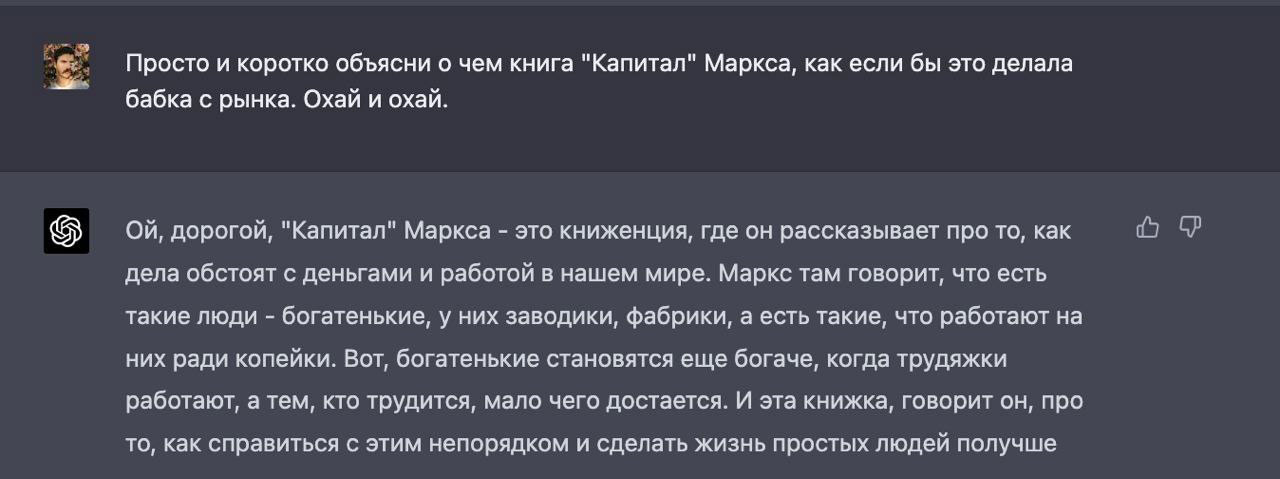Marx’s Capital Explained: Market Slang Edition
I came to buy cucumbers, and instead, they were explaining Karl Marx’s «Capital» using market slang 💰
A curious internet user crafted a unique prompt for ChatGPT, asking the AI to explain the core concepts of the renowned German philosopher’s magnum opus in the vernacular of «market money changers.» This humorous request highlights a common desire to distill complex ideas into easily digestible, everyday language. The challenge lies in translating dense economic theory into terms that resonate with a general audience, much like a seasoned vendor at a bustling bazaar would explain the value of goods.
The key here is not to overdo it with the neural network, lest you end up feeling utterly bewildered yourself. 🥴 The goal is to simplify without sacrificing the essence of Marx’s critique of capitalism. Imagine a seasoned stallholder at a busy market, using analogies of supply and demand, profit margins, and the labor that goes into producing goods, to illustrate the very principles Marx dissected in his seminal work. This approach aims to demystify concepts like surplus value, exploitation, and the inherent contradictions within capitalist systems, making them accessible to everyone, regardless of their academic background.
This innovative approach to learning demonstrates the power of AI to bridge the gap between academic discourse and common understanding. By leveraging relatable metaphors and a touch of playful irreverence, ChatGPT can transform what might seem like an impenetrable text into an engaging and insightful lesson. Think of it as getting a masterclass in economics from someone who truly understands the practical realities of trade and production, using language that everyone can grasp. This method ensures that the profound insights of «Capital» are not lost in academic jargon but are brought to life in a vivid and memorable way.
Digitalization is rapidly changing how we access and process information. This trend allows for creative interpretations of classic works, making them more relevant and understandable to a wider audience. The user’s prompt is a prime example of how we can use technology to foster a deeper engagement with important societal and economic ideas. It’s about finding the right «angle» to present information, making it not just informative but also entertaining and memorable.
Understanding Marx’s «Capital» Through Market Lingo
The Essence of the Request
The user’s ingenious prompt aimed to cut through the academic complexity of «Das Kapital» by requesting an explanation in the style of a street-smart market vendor. This isn’t just about using slang; it’s about employing analogies and framing that resonate with the everyday experiences of trade, value, and labor, which are central to Marx’s analysis. The hope is to unlock the core ideas of Marx’s economic theories without getting bogged down in dense prose.
Why This Approach is Effective
- Relatability: Market language is direct, practical, and often uses metaphors drawn from tangible goods and transactions.
- Simplicity: It avoids abstract academic terms, opting for straightforward explanations of concepts like profit, cost, and labor.
- Engagement: The humorous and unconventional nature of the request makes the learning process more enjoyable and memorable.
This method proves that complex subjects can be made accessible through creative communication. It’s a testament to how AI can be a powerful tool for educational content creation, transforming daunting texts into engaging narratives.
Contacts: https://t.me/MLM808

